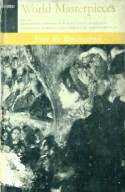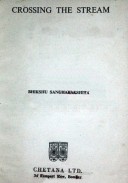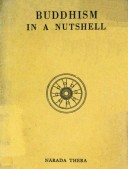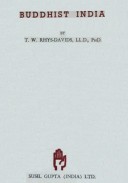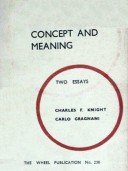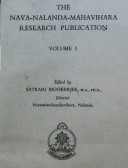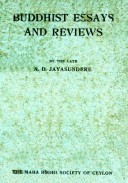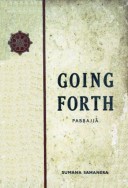Tìm Sách
Sách tiếng Anh-English >> World Masterpieces
Thông tin tra cứu
- Tên sách : World Masterpieces
- Tác giả : Bernard M. W. Knox
- Dịch giả :
- Ngôn ngữ : Anh
- Số trang : 1,659
- Nhà xuất bản : Norton & Company Inc Newyork
- Năm xuất bản : 1966
- Phân loại : Sách tiếng Anh-English
- MCB : 1210000005747
- OPAC :
- Tóm tắt :
Volume II
Literature of Western Culture since the Renaissance
CONTENTS
Preface to the Revised Edition
Preface
MASTERPIECES OF NEOCLASSICISM
Introduction
Lives, Writings, And Criticism
BLAISE PASCAL (1633-1662) – Thoughts (Les Pensées)
JOHN MILTON (1608-1674) – Samson Agonistes
JKAN-BAPT1STE POQUELIN MOLIÈRE (1622-1675) – Tartuffe or The Imposter
JEAN RACINE (1639-1699) – Phaedra
ALEXANDER POPE (1688-1744) – An Essay on Man—Epistle I
FRANCOIS-MARIE AROUET DE VOLTAIRE (1694-1778) – Candide, or Optimism
MASTERPIECES OF ROMANTICISM
Introduction
Lives, Writings, And Criticism
JEAN-JACQUES ROUSSEAU (1712-1778) – Confessions
Musings of a Solitary Stroller
JOHANN WOLFGANG VON GOETHE (1749-1832) – Faust
Prologue in Heaven
The First Part of the Tragedy
The Second Part of the Tragedy—Act V
GEORGE GORDON, LORD BYRON (1784-1824) – Don Juan—Canto II
WILLIAM WORDSWORTH (1770-1850)
Lines Composed a Few Miles above Tintern Abbey
Ode on Intimations of Immortality
Composed upon Westminster Bridge,
September 3, 1802
The World Is Too Much with Us
SAMUEL TAYLOR COLERIDGE (1772-1850) – Kubla Khan
Dejection: An Ode
PERCY BYSSHE SHELLEY (1791-1821) – Ode to the West Wind
A Defence of Poetry
JOHN KEATS (1795-1821) – Ode to a Nightingale
Ode on a Grecian Una
Ode: To Autumn
ALFRED, LORD TENNYSON (1809-1892) – Ulysses
The Passing of Arthur
ROBERT BROWNING (1812-1889)
The Bishop Orders His Tomb at Saint Praxed’s Church
EDGAR ALLAN POE (1809-1849) – Ligeia
WALT WHITMAN (1819-1892) – Song of Myself
A Noiseless Patient Spider
NATHANIEL HAWTHORNE (1804-1864) – Ethan Brand
HERMAN MELVILLE (1819-1891) – Billy Budd
ALEXANDER PUSHKIN (1799-1857) – Eugene Onegin
Masterpieces of Realism and Naturalism
INTRODUCTION
LIVES, WRITINGS, AND CRITICISM
HONORÉ DE BALZAC (1799-1850) – Gobacck
GUSTAVE FLAUBERT (1811-1880) – A Simple Heart
IVAN TURGENEV (1818-1883) – Fathers and Sons
FYODOR DOSTOEVSKY (1811-1881) – Notes from Underground
LEO TOLSTOY (1818-1910) – The Death of Iván Ilyich
ANTON CHEKOV (1860-1904) – The Kiss
HENRIK IBSEN (1818-1906) – The Wild Duck
HENRY JAMES (1843-1916) – The Aspem Papas
Masterpieces of Symbolism Modern School and the
INTRODUCTION
Lives, Writings, and criticism
CHARLES BAUDELAIRE (1811-1867) – A Carcass Correspondences
ARTHUR RIMBAUD (1854-1891) – Drunken Boa
ALEXANDER BLOK (1880-1921) – The Twelve
WILLIAM BUTLER YEATS (1865-1959)
The Towel Sailing to Byzantium Among School Children
FEDERICO GARCÍA LỜRCA (1899-1936) – Lament for the Matador
RAINER MARIA RILKE (1875-1936) – Duino Elegies Third Elegy Ninth Elegy
T. S. ELIOT (1888-1965) – Murder in the Cathedral
JAMES JOYCE (1882-1941) – A Portrait of the Artist as a Young Man
ANDRÉ GIDE (1869-1951) – Theseus (Thésée)
THOMAS MANN (1875-1955) – Tristan
FRANZ KAFKA (1883-1924) – Metamorphosis
MARCEL PROUST (1871-1922) – Remembrance of Things Past
D. H. LAWRENCE (1885-1930) – The Horse Dealer’s Daughter
BERTOLT BRECHT (1898-1956) – Caucasian Chalk Circle
JEAN-PAUL SARTRE (born 1905) – No Exit
ALBERT CAMUS. (1913-1960) – The Renegade
WILLIAM FAULKNER (1897-1962) – Delta Autumn
RAUL BRANOAO (1867?-1930) – The Thief and nil little Daughter
A NOTE ON TRANSLATION
INDEX
Preface to the Revised Edition
After ten years in which this anthology has won reassuring approval from many quarters, there seems to be no need either to reiterate its principles here (they may, in any case, be consulted below, in the preface to the first edition) or to deviate from them. What we have sought in this revised edition of World Masterpieces is to widen very considerably the range of choice for teachers and of literary experience for students, while at the same time increasing the number of complete works and the quality of the translations.
Authors now represented for the first time include Aristophanes, the anonymous author of Everyman, Petrarch, Marlowe. Tirso dc Molina, Calderón, Pascal, Pushkin, Turgeney, Henry James, Brecht, Sartre, and Camus. The “Ancient World” has been importantly enriched by the addition of Lyststrata and three books from the Odyssey and by supplementing Agamemnon with Prometheus Bound, Oedipus Rex with Antigone and Oedipus at Colonus thus completing the Theban cycle), and Medea with The Trojan Women. For the “Middle Ages,” Dante’s Inferno is now complete, and Everyman has been added. The “Renaissance” gains by the addition of selections from Petrarch, Marlowe’s Dr. Faustus, Tirso da Molina’s Trickster of Seville (on the Don Juan theme), and Calderón’s Life Is a Dream, “Neo-Classicism” and “Romanticism” are expanded and receive (we feel) a better balance from the addition of Pascal, the substitution of Tartuffe for The Bourgeois Gentleman, the addition of two selections from Wordsworth, the substitution of Kubla Khan and Dejection: An Ode for The Rune of the Ancient Mariner, and of Billy Budd for Bartleby the Scrivener, together with the addition of a long excerpt from Pushkin’s Eugene Onegin. In the section on “Realism and Naturalism,” Turgenev’s Fathers and Sons and Henry James’s The Aspern Papers replace an excerpt from Dickens’ Hard Times. The range of works in the section “Symbolism and the Modern School” has been strikingly expanded by the addition of Brecht’s The Cauoasiant Chalk Circle, Sartre’s No Exit, and Camus’ The Renegade, and the replacement of Kafka’s The Hunger Artist by his Metamorphosis, a story that during the past decade has increasingly shown itself to be one of the true abstracts and brief chronicles of our time. Synge’s Playboy of the Western World, delightful though it is, has a certain provinciality in this company and has been removed.
We hope that without immodesty we may again take special pride in our translations. Though every translation that we desired was not available to us, our effort to keep faith with our users and approvers may be seen in the reappearance here of Richard Lattimore, Louis MacNeice, Rex Warner, c. Day Lewis, Laurence Binyon, and Samuel Putnam; and in the appearance for the first time of Robert Fitzgerald (the Odyssey and Oedipus at Colonus) Edith Hamilton (Prometheus Bound and The Trojan Women), Richard Wilbur (Tartuffe), Robert Lowell (Phaedra), Edwin Muir (Metamorphosis), and several others of high distinction. Somewhat reluctantly, but recognizing that for all its virtues it is sometimes like an excerpt from the play than a translation, we have replaced William Butler Yeats’ Oedipus with a more faithful version by T. H. Banks, whose unpretentious skill in getting things right will be appreciated by those who tin now have felt obliged to spend class time pointing out that Yeats’ play is magnificent but not the one that Sophocles wrote.
We would be less than candid if we did not remind our readers that the bounty they are afforded in these two volumes owes much to the traditions maintained by our publisher. The willingness of W. W. Norton & Company, Inc., to cooperate with the editors at all points in alleviating the burden of preparation, sharing the cost of permissions to reprint, and finding ways and means of making so much space available at a modest price is here gratefully acknowledged by all of us, and by none more heartily than the general editor.
The Editors
PREFACE
World Masterpieces is an anthology of Western literature, based on principles which we believe to be sound, but which have not always been sufficiently observed, we feel, in the existing anthologies in this field.
We have sought to make the range of readings in this collection unusually wide and varied. Its contents reach in time from Genesis and the Iliad to Murder in the Cathedral, and the literatures represented include English, Irish, American, Russian, German, Scandinavian, French, Italian, Spanish, Portuguese, Latin, Hebrew, and Greek. The literatures of the Far East have been omitted, on the ground that the principal aim of a course in world literature is to bring American students into living contact with their own Western tradition, and that this aim cannot be adequately realized in a single course if they must also be introduced to a very different tradition, one requiring extended treatment to be correctly understood. Twentieth-century literature has been represented with particular fullness, because we feel that it is important for students to grasp the continuity of literature.
World Masterpieces is predominantly an anthology of imaginative literature. We have not tried to cover the entire history of the West in print, and have avoided filling our pages with philosophy, political theory, theology, historiography, and the like. This principle was adopted not because we disapprove of coming at the history of an epoch by way of literature, but because imaginative literature, in our view, itself best defines the character of its epoch: great monuments of art, we would be inclined to say, furnish the best documents for history. They lead us deeper into the meaning of a past age than other modes of writing do, because they convex its unformulated aspirations and intuitions as well as its conscious theorems and ideals; and yet, being timeless, they have also an unmatched appeal to our own age. For this reason, we have admitted into World Masterpieces only works which have something important to say to modem readers, and we have made it a point to interpret them with reference not only to their time but to ours Teacher and student will find here a number of selections which they have not encountered before in a text of this kind.
We are convinced that effective understanding of any author depends upon studying an autonomous and substantial piece of his work: a whole drama, a whole story, at least a whole canto or book of a long poem. Our anthology therefore contains no snippets. Where it has been necessary to represent a tong work by extracts, they are large extracts, forming a coherent whole. These considerations have alto affected our treatment of lyric poems. Experience leads us to the conclusion that lyric poetry cannot be taught with full success in translation, and that very short poems, in whatever language, are nearly useless in a survey of these dimensions. We have accordingly excluded almost all short lyrics, and, with rare exceptions, all lyric poetry in foreign languages. We have preferred to represent the romantic movement, in which the lyric becomes a dominant form, with selections in English from the major English and American poets. This is not a flawless solution to the problem, but it seems to us better than printing many pages of inferior translations.
Since nothing has so deterred students from enjoying the great masterpieces of the classical and modem foreign languages as translations in an English idiom that is no longer alive, we have done our best to use translations which show a feeling for the English language as it is written and spoken today. Thus we offer here, with some pride, Richmond Lattimoie’s Iliad; Louis MacNeice’s Agamemnon and his Faust; William Butler Yeats’s King Oedipus; Rex Warner’s Medea; C. Day Lewis’ Aeneid; Lawrence Binyon’s Divine Comedy; Samuel Putnam’s Don Quvoote; and many other renderings of equal quality.
Our introductions—“in consonance with the scheme of the book —emphasize criticism rather than history. While providing all that seems to us necessary in the way of historical background (and sup plying biographical summaries in the appendix following each introduction), we aim to give the student primarily a critical and analytical discussion of the works themselves. We try to suggest what these works have to say to us today, and why they should be valued now. In every instance, we seek to go beneath the usual generalizations about periods and philosophies, and to focus on men and books.
Our annotations of the texts arc, we believe, exceptionally full and helpful. In a number of cases, these texts are annotated in this anthology for the first time. In one instance, we have been able to supply for a work the best-known notes on it in English, those of c. H. Grandgent to the Divine Comedy. Every care has been taken to furnish accurate and generous bibliographies as a guide to further reading.
In sum, we have sought to compile a new anthology, a text new in every sense—new in its emphasis on imaginative literature, on major authors, on wholes and large excerpts, on modem translations, on critical rather than historical treatment of texts, and, pervasively, on the tastes and values of our own time.
The Editors
 Facebook
Facebook
 Google
Google
 Google+
Google+
